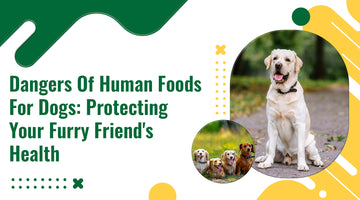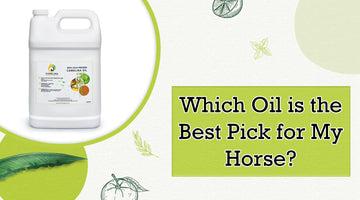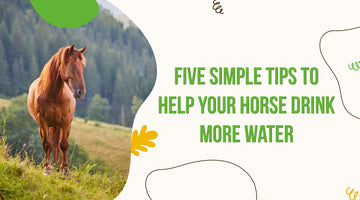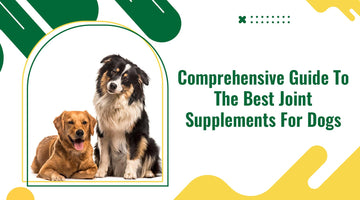Dangers of Human Foods for Dogs: Protecting Your Furry Friend's Health
by Curtis Greenwald on Apr 17, 2024

One of the most important aspects of parenting, whether for a human child or a fluffy canine partner, is ensuring that they receive adequate nutrition for optimal growth and health. Recently, it has become more usual for pet owners to supplement their dogs' diets with prepared meals, raw diets, or by boosting kibble with whole, fresh food ingredients.
But it's important to know which entire foods are risk-free for dogs and which should be avoided. Whole foods can provide your dog with extra nutrients, but it's crucial to strike a careful balance between things that are good for him and things that could be bad for him.
If you're looking to improve your pet's diet, this is the right spot. In this blog, we will talk about food that is unsafe for dog consumption, so that you know what to stay away from.
Whole Foods: Dangerous Ingredients for Dogs
When adding whole foods to a dog's diet to improve nutrition, it's crucial to understand what ingredients are safe and what may be dangerous. Even if you're not consuming these, being conscious is important.
In addition to the well-known risks associated with chocolate and onions, the following five whole human food items are ones you should never feed your dog:
1.Raisins and Grapes
Acute renal failure can occur in certain dogs due to grapes and raisins, which is perhaps one of the most unexpected harmful foods for dogs. That is why it's advisable to stay away from grapes and raisins completely because even a small bit of them can make a dog sick. The precise ingredient that triggers this reaction is unknown.
One sign to look out for is persistent vomiting. Within a day, you might also observe your dog becoming lethargic or melancholy. As soon as you discover that your dog has grapes or raisins, consult a veterinarian!
2.Avocado
Persin is a fungicidal toxin found in avocados that can make dogs throw up and have diarrhea. It is best to keep your dog away from this fruit, particularly the pit, which presents a choking hazard, even though the risk increases significantly in larger quantities.
Grow your own avocado trees: do you have a green thumb? Even so, it's a good idea to keep your dog away from your plant because, in addition to the fruit, Persin can also be found in the leaves, seeds, and bark.
3. Macadamia Nuts
Macadamia nuts should never be given to your dog! In dogs, these nuts can result in weakness, depression, tremors, vomiting, and overheating. After consumption, symptoms often start to show up 12 to 48 hours (about 2 days) later.
4. Xylitol
Several sugar-free items, such as gum, candies, and some peanut butters, include this sugar alternative. Dogs exposed to xylitol may experience seizures, liver failure, hypoglycemia (low blood sugar), or possibly pass away due to the toxin's quick release of insulin. Steer clear of at all costs.
5. Dairy Goods
It depends on your dog whether you avoid dairy. It's crucial to realize that while not all dogs are intolerant to lactose, many do have trouble breaking down the lactose found in milk and other dairy products.
Giving milk or cheese to your dog can cause needless upset stomach and diarrhea. If you do decide to give your dog dairy products, make sure they are speciality items like raw goat milk or plain products like yogurt.
Check the Label: Ingredients to Steer Clear of in Dog Food
It's important to be aware of the dog food ingredients you should avoid when it comes to giving your dog an optimal diet, regardless of whether you feed them raw, kibble, or home-cooked meals.
When purchasing dog food for your puppy, be sure the labels don't list any of the following ingredients:
1. BHT/BHA
Certain pet diets use these chemical preservatives to increase their shelf life. Their possible carcinogenic qualities have been the subject of studies; thus, it is better to exclude them from your dog's diet.
Even while you might not need to buy food for your pet as frequently, you run the risk of endangering their general health and lifespan. Numerous of these harmful preservatives have been linked to major health issues like liver or renal failure.
2. Glycol Propylene
Propylene glycol is an ingredient in various dog diets and treats that helps them stay moist. It is also present in antifreeze. Despite being regarded as less hazardous than ethylene glycol, which is used in car antifreezes, its usage in pet food is debatable and may even be hazardous.
3. Artificial Colors and Flavors
While these additives might make food more appealing to pet owners, they offer no nutritional benefit to dogs and can even be the cause of more serious issues. Possible problems for your dog could be as simple as allergic reactions or as serious as cancer.
4. "Meal" of meat
Meat meal is a common ingredient used by food makers to increase the "protein" level of dog food and treats. Yes, more protein is a good thing.
More protein is a good thing, but not all protein is created equal. "Meal" describes meat that is heated to remove fat from animal scraps, some of which may be infected. Without understanding where it comes from, its true nutritional worth is unknown, even though it can sound like a protein boost.
It's smarter to choose meals with actual meat instead of meat for your dog's benefit, as this will guarantee they obtain the high-quality protein they need.
5. Corn and Wheat Gluten
These ingredients are often used as cheap protein sources or fillers in dog food. However, they can cause digestive upset and allergies in some dogs, and they offer limited nutritional value compared to high-quality protein sources.
Improving Your Dog's Nutrition: The Top 3 Healthful Items to Put in Their Bowl
In order to improve your dog's nutrition and general health, you may safely add a variety of helpful options to their meals in addition to the whole foods and dog food ingredients you should avoid giving them.
We've spent a lot of time discussing the drawbacks, so let's also talk about some delicious foods you may give your dog as a supplement!
Just a brief but crucial reminder: Before making any modifications to your pet's food, always consult your veterinarian or a trained canine nutritionist.
1. Cut Meats
Lean meats like beef, turkey, and chicken are great sources of protein, which is necessary for the growth of muscles and energy in your dog.
A balanced dog diet must include protein since it helps with everything from maintaining healthy muscles to maintaining a healthy coat and skin. Mealtime can be made more enticing and healthful for your dog by adding a little quantity of lean meat to their kibble.
2. Fish: High in Omega-3 for Healthier Skin and Coats
Omega-3 fatty acids are abundant in fish, especially fatty varieties like sardines, mackerel, and salmon, and they are well-known for their anti-inflammatory qualities.
These fats help keep your dog's coat looking healthy and lustrous while also potentially lessening skin irritations. Furthermore, omega-3s help your dog's heart health, immunological system, and cognitive abilities.
When fresh sources aren't convenient or your dog doesn't like fish, omega supplements like those made from flaxseed or camelina oil can be great substitutes.
3. Vegetables
Vegetables can provide your dog with a range of vitamins, minerals, and fiber, which can improve their general health and facilitate digestion. Among the veggies that are suitable for dogs to eat are carrots, green beans, and pumpkin.
When eaten raw or very lightly heated, carrots and green beans combine to provide a crisp and nourishing snack. Conversely, pumpkin is particularly good for digestive health and aids in controlling bowel movements.
To make sure new veggies are compatible with your dog's digestive tract, always introduce them gradually and in tiny amounts.
Take Care to Keep Your Dog's Bowl Balanced!
It's usually best to err on the side of caution when it comes to giving your dog whole meals. Many foods that are healthy for humans but not for dogs can be dangerous for our canine companions. The best approach to ensure your dog stays healthy and happy is to steer clear of these dangerous foods and instead stick to dog-friendly alternatives.
You can safely and healthily supplement your dog's diet by carefully choosing whole foods to put in their bowl. As before, seek advice from your veterinarian before making any dietary modifications for your dog, particularly when adding new foods or supplements.
You can make sure your dog has a balanced, nutrient-dense diet free from the hazards connected with risky foods by keeping an eye out for potentially harmful substances and learning about the advantages of other meals.
F&Qs
- What foods should I avoid feeding my dog?
Certain foods can be harmful or even toxic to dogs. Some common ones to avoid include chocolate, grapes and raisins, onions and garlic, avocado, alcohol, caffeine, macadamia nuts, and foods containing xylitol (a sugar substitute).
- Why is chocolate harmful to dogs?
Chocolate contains theobromine and caffeine, both of which are toxic to dogs. These substances can cause vomiting, diarrhea, rapid breathing, increased heart rate, seizures, and even death in severe cases.
- What about alcohol and caffeine?
Alcohol and caffeine can have serious effects on a dog's nervous system and heart. Even small amounts can lead to vomiting, diarrhea, tremors, seizures, and in severe cases, death. It's essential to keep all alcoholic beverages and caffeinated products away from your dog.



